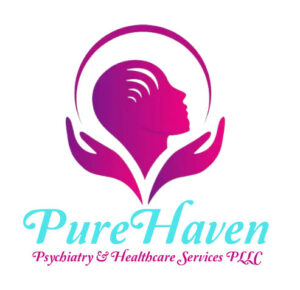Early Signs of Bipolar Depression (How to Recognize the Symptoms Early)
When it comes to mood disorders, early bipolar depression symptoms often go unnoticed or get mistaken for regular depression. Yet recognizing the first signs of bipolar disorder is key to getting timely and effective treatment. Unlike unipolar depression, bipolar depression is part of a broader cycle that includes both low (depressive) and high (manic or hypomanic) mood episodes. This blog will help you identify the early onset bipolar signs, understand the differences between bipolar vs depression, and know when to seek professional help.
Table of Contents
- What Is Bipolar Depression?
- First Signs of Bipolar Disorder
- Bipolar Depression vs. Regular Depression
- Early Signs in Teens and Young Adults
- When Manic Symptoms Follow Depression
- When to Seek Help (or Emergency Care)
- How Early Diagnosis Improves Outcomes
- Call to Action
- Final Thoughts
1. What Is Bipolar Depression?
Bipolar depression refers to the depressive phase of bipolar disorder—a condition marked by intense mood swings between emotional highs (mania or hypomania) and lows (depression). While manic episodes tend to be more visible and dramatic, it’s often the depressive symptoms that appear first. These low phases can be deeply debilitating, affecting a person’s energy, motivation, sleep, and daily functioning.
2. First Signs of Bipolar Disorder
The first signs of bipolar disorder often mimic classic depression, making early diagnosis a challenge. Some common symptoms include:
-
Persistent sadness or hopelessness
-
Low energy or fatigue
-
Difficulty concentrating
-
Loss of interest in activities once enjoyed
-
Irritability or unexplained anger
-
Social withdrawal or isolation
Because these signs overlap with unipolar depression, many individuals are initially misdiagnosed, delaying proper bipolar treatment.
3. Bipolar Depression vs. Regular Depression
Understanding the difference between bipolar depression and regular (unipolar) depression is essential for choosing the right treatment path. While unipolar depression typically involves a persistent low mood over time, bipolar depression is often marked by depressive episodes that may be interrupted or followed by manic or hypomanic symptoms. These mood shifts can be more unpredictable and are more common in individuals with a family history of mood disorders. Recognizing these early patterns is key—misdiagnosing bipolar disorder as standard depression can lead to ineffective or even harmful treatments, such as using antidepressants without mood stabilizers, which may trigger manic episodes.
4. Early Signs in Teens and Young Adults
Bipolar disorder symptoms in teens can be especially tricky to identify because mood changes in adolescence are often seen as normal. However, signs of early-onset bipolar may include:
-
Extreme mood swings that go beyond typical teen behavior
-
Reckless actions or poor judgment
-
Dramatic changes in sleep or eating habits
-
Sudden drop in academic performance
-
Periods of high energy followed by deep fatigue
If you’re noticing these shifts in a teenager or young adult, it’s important to consult a mental health professional. Early diagnosis can prevent years of confusion and suffering.
5. When Manic Symptoms Follow Depression
Another red flag for early bipolar depression symptoms is when a person experiences a sudden burst of energy, racing thoughts, or impulsive decisions after a depressive episode. These are signs of a manic or hypomanic shift, which differentiates bipolar from other mood disorders. You might notice:
-
Talking faster or jumping between topics
-
Decreased need for sleep
-
Taking on multiple tasks with urgency
-
Increased risk-taking behavior
These shifts may feel like “getting better,” but they often precede a manic episode and should not be ignored.
6. When to Seek Help (or Emergency Care)
If early signs of bipolar depression are interfering with your daily life or leading to unsafe behaviors, it’s crucial to seek professional support. Immediate help is especially important if you or a loved one is experiencing suicidal thoughts, self-harm, delusions, hallucinations, days without sleep or functioning, or engaging in reckless behaviors like substance abuse or dangerous spending. These symptoms may warrant a visit to the emergency room or a crisis intervention center. Don’t wait for things to escalate—early care can make a significant difference in long-term outcomes.
7. How Early Diagnosis Improves Outcomes
Spotting early onset bipolar signs gives patients and their families the chance to:
-
Get on the right medication and avoid trial-and-error with antidepressants
-
Access therapy tailored to mood regulation
-
Build strong support systems
-
Reduce the risk of hospitalization or long-term disability
Therapies like Cognitive Behavioral Therapy (CBT), psychoeducation, and mood stabilizing medications can significantly improve long-term outcomes when started early.
8. Call to Action
If you suspect you or someone you care about may be showing the first signs of bipolar disorder, don’t wait. At Pure Haven Psychiatry, we specialize in mood disorder assessments, personalized treatment plans, and compassionate care for individuals of all ages. Whether you’re seeking clarity, stability, or a second opinion, our expert team is here to guide you toward better mental health. Contact us today to schedule an appointment and take the first step toward healing.
9. Final Thoughts
Bipolar disorder doesn’t usually start with a dramatic manic episode—it often begins quietly, with persistent low moods, irritability, or fatigue. Recognizing the early bipolar depression symptoms is essential for timely intervention. Whether you’re navigating these changes yourself or noticing them in a loved one, understanding the difference between bipolar vs depression can be life-changing. Early help leads to better treatment options and, ultimately, a more stable and fulfilling life.
Disclaimer
This blog is for informational purposes only and should not be used as a substitute for professional medical advice, diagnosis, or treatment. If you or someone you know is experiencing severe mood changes, suicidal thoughts, or other concerning symptoms, seek immediate help from a qualified healthcare provider or call emergency services. Always consult with a licensed mental health professional for personalized guidance.

